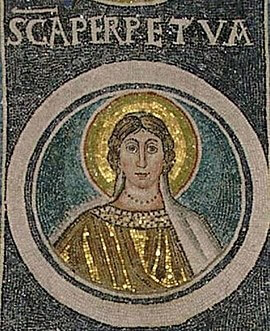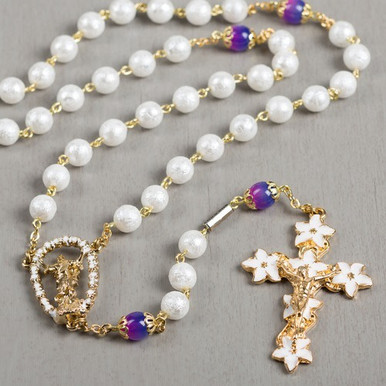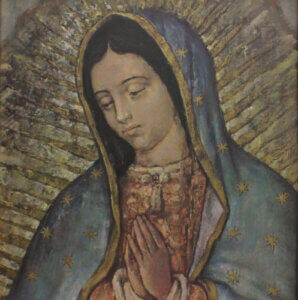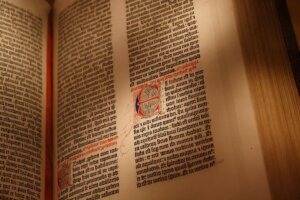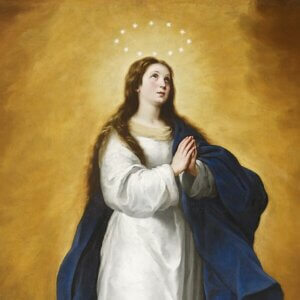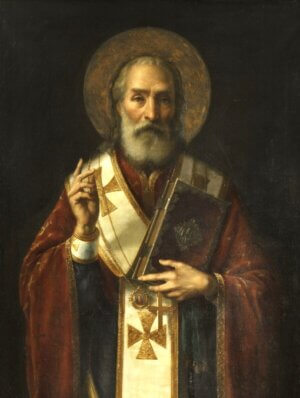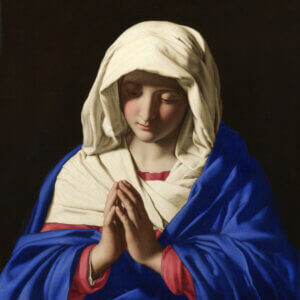“To us, also, your servants, who, though sinners, hope in your abundant mercies, graciously grant some share and fellowship with your holy Apostles and Martyrs: with John the Baptist, Stephen, Matthias, Barnabas, Ignatius, Alexander, Marcellinus, Peter, Felicity, Perpetua, Agatha, Lucy, Agnes, Cecilia, Anastasia…”
We hear this Eucharistic Prayer almost every Sunday, yet many of us don’t know who these saints are and why they’re included in this principal moment in the Mass.
Today, March 7th, is the feast day of both Sts. Perpetua and Felicity. The legacy of their lives and martyrdoms have been passed onto us by St. Perpetua’s very own diary, which provides a deeply personal account of their final days.
The journey of Perpetua and Felicity to sainthood began in an era when embracing Christianity was a defiance of Roman pagan norms. These two young mothers—Perpetua a noblewoman and Felicity a slave—chose to follow Christ in a time of rampant persecution.
Their commitment to their Faith led to their arrest and imprisonment. Despite the grim reality of their impending execution and the emotional pleas of their families, Perpetua and Felicity remained resolute, ready to die as martyrs rather than live without faith.
In this pagan culture, the simple faith of these young women was enough to condemn them to the most cruel punishment: execution in the Roman arena, facing wild beasts and gladiators. They met their end on March 7th, 203.
When faced with a frightful death in an arena filled with spectators cheering for your blood, it seems reasonable that one might be filled with anxiety and despair. But Felicity and Perpetua were at peace. In a diary she kept in her last days awaiting execution, Perpetua writes of the renewal of faith she and Felicity experienced, even as they anticipated death by gladiators or lions. In her writings, Perpetua describes vivid dreams that strengthened her faith and resolve.
Perpetua’s diary is a rare and invaluable historical document. Written from her prison cell, it is one of the earliest surviving texts of its kind. It’s also a unique spiritual treasure, providing insight into the mindset of a martyr.
Eucharistic Prayers I and II commemorate Sts. Perpetua and Felicity, underscoring their significance in the Catholic Faith. Their presence in the prayers links the congregation with the early Church’s sacrifices and embodies the continuity and unity of the Christian Faith, a unity of sacrifice that we are meant to embrace every day.
It is unlikely—praise be to God—that we will have to suffer execution in a pagan arena. However, we are still meant to unite our own daily sacrifices with the sufferings of all the saints, facing our own trials, big or small, with the same resolute faith they exemplified.
Who knows, maybe your own dairy will be held as a testament of faith to future generations! By using the Ave Catholic Notetaking Bible, you can keep a journal right alongside the inspiring Word of God, jotting down your thoughts, questions, and prayers as you read. There is no better source of strength and inspiration than the Bible and its countless stories of men and women whose lives were transformed by the presence of God. Order your notetaking Bible from The Catholic Company today!
